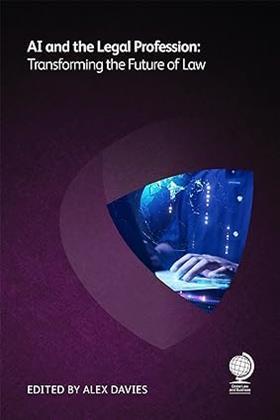AI: a stalwart colleague or a flight of fantasy?
AI and the Legal Profession: Transforming the Future of Law
Uwais Iqbal et al
£149, Globe Law and Business
★★★✩✩
Picture the scene. You have been in court all day and get back to the office at 5pm. Your emails have been read, rubbish deleted and the important ones dealt with. That lease which you need to look at has been read and there is a concise note of the important points. A letter has been sent to your client highlighting the issues and asking for their comments. That bundle of documents for tomorrow’s case has been read and analysed. The client should settle the case. Your filing cabinet has been gone through and bills sent out – some even have been paid. There is also a confidential note on the productivity of the colleagues you supervise. This tells you that one has put in extra hours and another fewer. Are you dreaming? No, this is what artificial intelligence offers.

Whether it will deliver, and in what way, is the question. Would you trust a computer? And are lawyers about to be replaced by machines?
Certainly, there are areas in which AI could help us. It is important in finding up-to-date law and relevant cases. It offers much in HR and management because it can analyse performance, outcomes and efficiency. Furthermore, AI can save time by quickly reading a contract and identifying key information, such as length and country of jurisdiction. It would have to be quite advanced, though, to analyse evidence – whether criminal or civil. That will probably happen. The question is, would lawyers trust a machine to do this? Most of the tasks identified in my introduction could be done by a colleague. However you would probably still want to check the work.
But AI has its horror stories. In August 2019, Roberto Mata was a passenger on an Avianca flight 670 from El Salvador to New York. A trolley allegedly injured his knee. Mata duly sued Avianca. The airline responded by asking that the case be dismissed because ‘the statute of limitations had expired’. Mata’s lawyers produced a list of at least six court cases that set precedents supporting their argument. When the cases were read, it was discovered they had all been made up by a computer. The lawyer was an experienced litigator but had not used that particular chatbot before to aid his research.
There is a long way to go to develop easy-to-use IT. It will, however, be an interesting journey!
David Pickup is a partner at Pickup & Scott Solicitors, Aylesbury































No comments yet